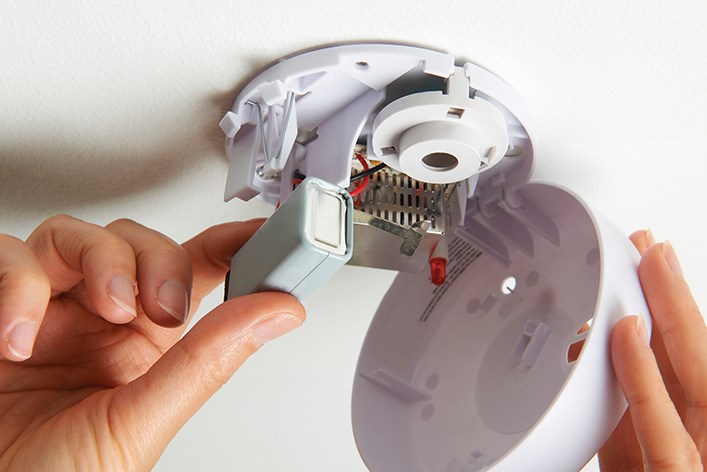Pay attention to those beeps.
That’s the message from the Delta Fire Department and the theme of this year’s Fire and Prevention Week that runs from Oct. 3 to 9.
‘Learn the Sounds of Fire Safety’ works to educate everyone about simple, but important actions they can take to keep themselves and those around them safe.
“We get a lot of calls from citizens saying my smoke alarm or my carbon monoxide alarm is making an alarm and what should I do? Then when they describe what it is doing, it’s not alarming, it’s notifying you that (batteries) need to be placed,” explained Delta Deputy fire Chief Dave Wood. “When you here a beep then nothing then a beep later, that means the difference between the alarm and the battery telling you that I need to be replaced. I think it’s an educational thing and there needs to be an awareness.”
Wood added people just need to understand more about their in-house alarms.
Tips include:
- A continuous set of three loud beeps—beep, beep, beep—means smoke or fire. Get out, call 9-1-1, and stay out.
-A single chirp every 30 or 60 seconds means the battery is low and must be changed.
-Chirping that continues after the battery has been replaced means the alarm is at the end of its life and the unit must be replaced.
- All smoke alarms must be replaced after 10 years.
- Make sure your smoke and CO alarms meet the needs of all your family members, including those with sensory or physical disabilities.
“(National Fire Protection Association’s) motto is ‘hear a beep get on your feet.’ Hear a chirp then make a change. If it’s alarming get out. If it’s chirping, it’s wake-up I’m here, I need some help and I need to be fed (a new battery).”
For the second straight year, COVID-19 has resulted in Delta Fire adjusting its promoting of Fire Prevention Week. It will rely mainly on a social media campaign and information material that will be distributed through local elementary schools.
For more general information about Fire Prevention Week and fire prevention in general, visit www.fpw.org.


